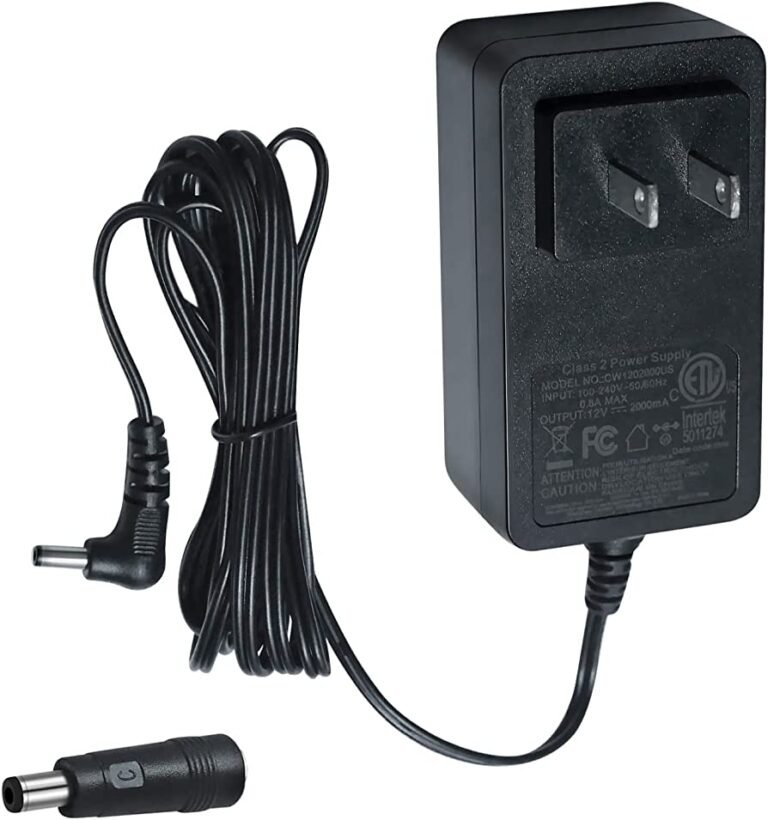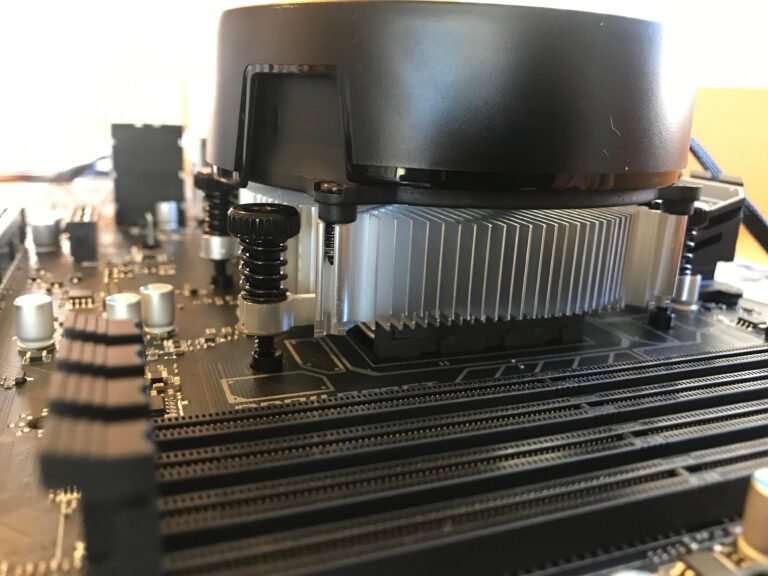Does a Cheap Motherboard Matter
Yes, a cheap motherboard can matter. If you are looking for a durable and long-lasting motherboard, then you should avoid the cheaper options. However, if you are only looking for a motherboard that will work for a short period of time, then a cheap option may be fine.
Ultimately, it depends on your needs and budget.
A motherboard is one of the most important parts of a computer, yet it is often overlooked. A cheap motherboard can cause a number of problems, including bottlenecking your CPU, causing stability issues, and limiting your overclocking potential.
If you are building a gaming PC on a budget, you may be tempted to save money by opting for a cheaper motherboard.
However, this is generally not a good idea. A quality motherboard will provide better performance and stability than a cheap one, and it will also allow you to overclock your CPU if you so desire. It’s worth spending the extra money on a good motherboard upfront, as it will save you headaches down the road.
Does Motherboard Matter for Cpu
It is often said that the motherboard is the most important part of a computer. After all, it is the backbone of the system, providing support for all other components. The CPU (central processing unit) is one of the most important components in a computer, and its performance can be greatly affected by the quality of the motherboard.
In this article, we’ll take a look at how motherboards affect CPU performance and whether or not they really matter.
The first thing to understand is that every component in a computer works together to produce the final result. The CPU may be responsible for processing information, but it relies on other components, like the motherboard, to provide power and support.
That being said, let’s take a look at how motherboards can affect CPU performance.
One way motherboards can affect CPU performance is by providing more or less support for overclocking. Overclocking is when you increase the clock speed of your CPU beyond its default settings in order to improve performance.
It can be a useful tool for gamers or power users who want to get the most out of their computers. However, it can also lead to instability if not done properly. A good motherboard will provide ample support for overclocking, while a poor one will make it more difficult or even impossible to overclock your CPU successfully.
Another way motherboards can affect CPU performance is by dictating which CPUs are compatible with your system. Different sockets are used for different types of CPUs, so you need to make sure that you have a compatible socket on your motherboard before buying a newCPU . If you don’t, you’ll either need to buy a new motherboard or use an adapter (which may not work as well).
Incompatible sockets can also leadto reducedperformance becausethe Chipset onthe Motherboardmay notbe as advancedas whatis neededto runthe newerCPUat full potential speedsand capabilities.. Furthermore,, usingan olderCPUin amotherboardwitha newerchipsetdesignedfora differentsockettypecanreduceoverallsystemperformanceby bottleneckingthe systemresourcesavailableto thosenewerparts designedforabetterplatform.
.
Does It Matter What Motherboard You Have for a Graphics Card
A motherboard is one of the most important parts of a computer, especially when it comes to gaming. The graphics card is what produces the image on your monitor, so it’s important to have a good one. But does it really matter what motherboard you have for a graphics card?
The answer is yes and no. It depends on what you want to do with your computer. If you’re just looking to play casual games or do some basic computing, then the answer is no – any old motherboard will do.
However, if you want to get the most out of your graphics card and be able to play the latest games on maximum settings, then you need a good quality motherboard that can support all of the features of your graphics card.
There are two main things to consider when choosing a motherboard for a graphics card: compatibility and performance. Compatibility is important because different motherboards use different types of sockets and connectors.
Make sure that your chosen motherboard has the right type of socket for your particular graphics card – otherwise it simply won’t fit! Performance-wise, it’s important to choose a motherboard that can offer enough bandwidth for your needs. Again, this will vary depending on what you want to do with your computer but as a general rule of thumb, look for motherboards with at least 2 PCIe 3.0 slots (for best results with current generation cards) and plenty of RAM slots too (8GB is ideal).
So there you have it – everything you need to know about choosing a motherboard for a graphics card. Remember, if you’re just doing casual gaming or basic computing then any old board will suffice but if you want to get the most out of your setup then make sure you choose wisely!
Does Motherboard Matter for Performance
There’s a lot of debate on this topic, but we believe that yes, the motherboard does matter for performance. Here’s why:
The motherboard is the foundation of your computer.
It houses the CPU, RAM, and other important components. A good motherboard will ensure that these components work together smoothly and efficiently.
A high-quality motherboard will also offer features that can boost your system’s performance.
For example, some motherboards come with built-in overclocking capabilities. This means you can push your CPU and RAM to run at faster speeds than they’re designed for, giving you a nice performance boost.
Of course, you don’t need a top-of-the-line motherboard to build a great gaming PC.
But if you’re looking to get the most out of your system, investing in a good motherboard is definitely worth it.
Does a Motherboard Affect Gaming Performance
When it comes to gaming, every little bit counts. That’s why many gamers are interested in whether or not a motherboard affects gaming performance. While there are many factors that affect gaming performance, the motherboard is definitely one of them.
In this blog post, we’ll take a closer look at how a motherboard can impact your gaming experience.
The first thing to consider is the chipset that your motherboard has. The chipset is what determines what kind of CPU and graphics card you can use with your system.
For example, if you want to use an Intel Core i7 processor, you’ll need a motherboard with an LGA 1151 socket and a Z270 chipset. On the other hand, if you want to use an AMD Ryzen 7 processor, you’ll need an AM4 socket and an X470 chipset. So, if you’re looking for top-of-the-line gaming performance, make sure your motherboard has the right chipset for your needs.
Another factor to consider is the number of PCIe lanes that your motherboard has. PCIe lanes are used for connecting devices like graphics cards and SSDs to your system. The more PCIe lanes your motherboard has, the more devices you can connect to it.
And if you want to connect multiple graphics cards (for SLI or CrossFire), then you’ll need even more PCIe lanes. So, if maximum expandability is important to you, make sure your motherboard has plenty of PCIe lanes available.
Finally, take a look at the features that your particular motherboard offers.
Some motherboards come with built-in WiFi or Bluetooth capabilities while others have extra USB ports or special fan headers. These features might not seem important at first glance but they can actually be quite useful when it comes to gaming (or just using your PC in general).
Does Motherboard Matter Reddit
When it comes to building a PC, the motherboard is one of the most important components. It’s the foundation that everything else is built on, so it’s essential to choose wisely.
There are a lot of factors to consider when selecting a motherboard, but one of the most important is compatibility.
Make sure you check what type of CPU socket and chipset your chosen motherboard supports. Other things to look at include expansion slots, memory support, and onboard features.
Once you’ve found a compatible motherboard, it’s time to start thinking about price.
Just because a board is expensive doesn’t mean it’s better quality; there are plenty of great inexpensive options out there. Ultimately, it’s up to you how much you want to spend on this critical component.
No matter which motherboard you choose, be sure to do your research and select carefully.
Your perfect setup awaits!

Credit: altgov2.org
Are Cheap Motherboards Worth It?
Are Cheap Motherboards Worth It?
With so many different types of motherboards on the market, it can be hard to know which one is right for you. And with prices ranging from budget-friendly to sky-high, it can be even harder to narrow down your choices.
So, the question remains: are cheap motherboards worth it?
To answer this question, we first need to understand what a motherboard is and what it does. A motherboard is the main circuit board in a computer.
It houses the CPU (central processing unit), RAM (random access memory), and other important components. The motherboard also has slots for expansion cards and connectors for attaching peripherals. In short, the motherboard is responsible for connecting all the different parts of a computer together.
Now that we know what a motherboard does, let’s take a look at some of the factors that affect its price. Generally speaking, more expensive motherboards will offer better performance and features than their cheaper counterparts. They may have higher quality components, support faster CPUs and memory speeds, or come with extras like built-in Wi-Fi or RGB lighting.
However, that doesn’t mean you necessarily need to spend a lot of money on a motherboard; there are plenty of great value options out there if you know where to look.
So, are cheap motherboards worth it? The answer really depends on your needs and budget.
If you’re building a high-end gaming PC or working with sensitive data, then spending extra on a top-of-the-line motherboard makes sense. But if you’re just looking for something that will get the job done without breaking the bank, then there are plenty of great inexpensive options available.
Can a Cheap Motherboard Affect Performance?
A motherboard is one of the most important parts of a computer, as it is responsible for connecting all of the different components together. A cheap motherboard can affect performance in a number of ways.
Firstly, a cheap motherboard is likely to be made from lower quality materials and components.
This means that it is more likely to break or malfunction over time, which can lead to decreased performance or even complete system failure. Additionally, cheaper motherboards tend to have less features and fewer expansion slots, which can limit the potential for upgrading your system in the future.
Furthermore, cheaper motherboards often have lower quality power delivery systems.
This can lead to instability and crashes, particularly when overclocking or running demanding applications. Finally, cheaper motherboards generally provide poorer cooling options, meaning that your system will run hotter and slower over time.
In summary, a cheap motherboard can definitely affect performance – sometimes in a very negative way.
If you’re serious about building a high-performance system then it’s worth investing in a quality motherboard from a reputable manufacturer.
What Happens If You Buy a Cheap Motherboard?
If you buy a cheap motherboard, you may end up with a lower quality product. Cheap motherboards may not have as many features as more expensive models and they may not be as durable. In addition, cheaper motherboards may not offer the same level of support and customer service as more expensive brands.
Does It Really Matter What Motherboard You Get?
It really does matter what motherboard you get. The motherboard is the backbone of your computer, and it needs to be able to handle everything you throw at it. If you’re a power user or gamer, then you need a good quality motherboard that can handle all of the components in your system and keep them running smoothly.
Even if you’re not a power user, though, it’s still important to get a decent motherboard. A cheap one might work for a while, but it will eventually start to have problems and may not be able to handle future upgrades. So, whether you’re building a new computer from scratch or just upgrading your old one, make sure to choose wisely when it comes to motherboards.
Are EXPENSIVE Motherboards Worth It?
Conclusion
A motherboard is one of the most important parts of a computer, and it is also one of the most expensive. So, does a cheap motherboard matter? The answer is yes and no.
A cheap motherboard can be just as good as an expensive one, but it all depends on what you need and what you’re looking for in a motherboard. If you’re just looking for something that will get the job done, then a cheap motherboard is fine. However, if you’re looking for something that will offer better performance or features, then you’ll need to spend more money on a better quality motherboard.










